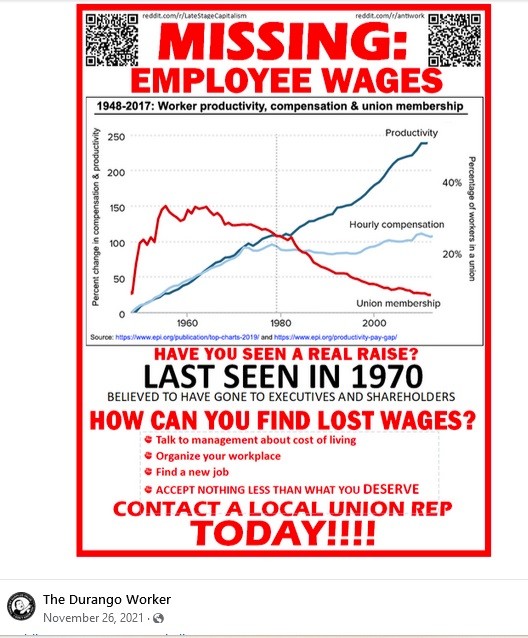Late Stage Capitalism
A place for for news, discussion, memes, and links criticizing capitalism and advancing viewpoints that challenge liberal capitalist ideology. That means any support for any liberal capitalist political party (like the Democrats) is strictly prohibited.
A zero-tolerance policy for bigotry of any kind. Failure to respect this will result in a ban.
RULES:
1 Understand the left starts at anti-capitalism.
2 No Trolling
3 No capitalist apologia, anti-socialism, or liberalism, liberalism is in direct conflict with the left. Support for capitalism or for the parties or ideologies that uphold it are not welcome or tolerated.
4 No imperialism, conservatism, reactionism or Zionism, lessor evil rhetoric. Dismissing 3rd party votes or 'wasted votes on 3rd party' is lessor evil rhetoric.
5 No bigotry, no racism, sexism, antisemitism, homophobia, transphobia, ableism, or any type of prejudice.
6 Be civil in comments and no accusations of being a bot, 'paid by Putin,' etc.
view the rest of the comments

I think the decline in union membership is a symptom more than a cause. The late seventies, early eighties is where we saw industrial automation start to really take off. As actual skilled labour got handed over to automated processes, unions lost power (the political union busting also played a huge part), since their members biggest chip was the difficulty in replacing them if they all leave.
The decline in union membership was very much due to an intentional attack by Reagan and the Republicans. Until Reagan, the National Labor Relations Board had been composed of mostly career government lawyers. They were replaced with people who had spent their careers representing management. They aggressively reversed precedents and narrowed workers rights.
https://onlabor.org/ronald-reagan-has-shaped-u-s-labor-law-for-decades/
Reagan accelerated what was already coming. Automation completely changes the balance of power in labour negotiations. Previously, unions had power because skilled labour is very expensive and time consuming to replace. If you automate the "skilled" portion of that equation, companies immediately become much more willing to simply shut a plant and move production elsewhere.